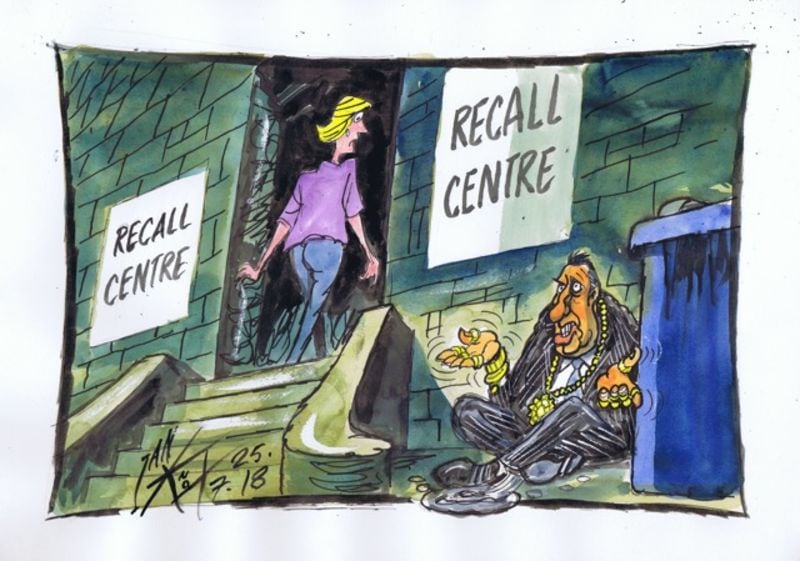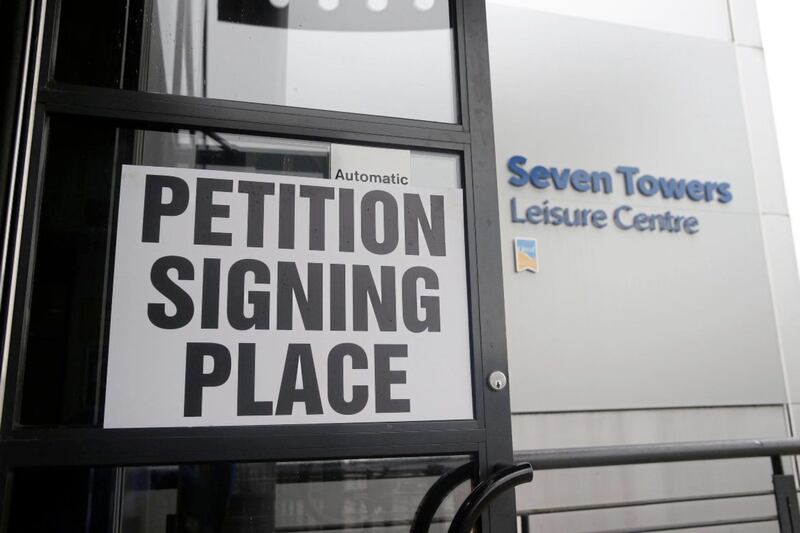SINN Féin has criticised a report by the Electoral Commission which found that opening more voting centres for Ian Paisley's parliamentary recall petition would not have altered the result.
Mr Paisley survived the House of Commons' first ever recall petition after less than the required 10 per cent of the electorate signed their support for a by-election.
He would have been ousted as an MP if 7,543 voters in North Antrim signed the petition. In the event, 7,099 people signed it (9.4%).
In the wake of September's result, the Electoral Office of Northern Ireland was pressed on why it only operated three voting centres for the six-week period the petition was open, when a maximum of 10 were permitted.
Sinn Féin was particularly critical of the decision.
But in its statutory report on the running of the petition, the Electoral Commission concluded that opening more centres would not have affected the result.
The report stated: "We recognise that the decision to use only three signing places was the subject of much debate and criticism. However, we have found no evidence that an increased number of signing places would have contributed to a different result at the end of the recall petition."
It added: "Electors had six weeks in which to sign the petition at their designated venue and could also sign by post or appoint a proxy on demand. This is a significant factor to consider when compared to all other electoral events in Northern Ireland where electors are required to give a valid reason as to why they cannot attend their polling station in person."
Sinn Féin North Antrim MLA Philip McGuigan rejected the finding.
“That conclusion defies all logic and ignores the evidence on the ground where people were clearly stating that accessibility was a huge factor," he said.
"The lack of an effective public awareness campaign and worker-friendly opening hours were also major concerns that the Electoral Commission have not satisfactorily addressed.

“At the time of the petition, a number of political parties reported that members of the public were reluctant to attend the signing centres because their reasons for being there would have been easily identified.
“Did the Electoral Commission actually speak to any of those people or did they simply talk to those who had carried out the petition and who were hardly likely to criticise their own work?
“All of the very serious concerns raised during this petition have been simply glossed over by the Electoral Commission report and no substantive recommendations for changes to the process have been made."
Read more:
- Ian Paisley claims recall petition result 'miraculous'
- Apathy rather than divine intervention ensures Paisley survives (premium)
- Electoral Office defends handling of Ian Paisley recall petition
The petition device, created following the Westminster expenses scandal, was initiated after Mr Paisley was banned from the House of Commons for 30 sitting days for failing to declare two 2013 family holidays paid for by the Sri Lankan government.
A parliamentary watchdog found in July that, a year after the luxury holidays, Mr Paisley lobbied then prime minister David Cameron not to support a UN probe into alleged Sri Lankan human rights abuses.

The commission found that, overall, the petition was well run, with some lessons to be learned.
It identified a number of practical issues that it said would help voters, campaigners and administrators at any future petition.
These included looking at whether a signing period of six weeks is appropriate and how electors could get more information on recall petitions.
Read more:
- What is a recall petition?
- Ian Paisley: The DUP MP as documented by Ian Knox
- Claire Simpson: Essence of Paisley is undistilled confidence flavoured with the ridiculous
The report said: "Feedback from those who worked and campaigned at the recall petition was that the six-week signing period was too long. Concerns were also raised as to whether there was enough awareness amongst electors on how they could participate."

Ann Watt, head of the Electoral Commission in Northern Ireland, said: "Overall, the North Antrim recall petition was well-run, with no significant problems.
"This was the first time the legislation for such a petition had been tested. It therefore provides an opportunity for lessons to be learnt and highlights improvements that could be made by the UK Government which could help voters, campaigners and administrators at any future petition."
The commission said a total of £4,178 of spending was reported by the two registered campaigners - Sinn Féin and the Alliance Party.









